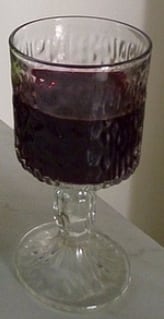Study author Dr. Naomi Cermak, from the Department of Human Movement Sciences at Maastricht University told BeverageDaily.com her team had published two studies relating to the effects of beetroot juice as an ergogenic aid.
The first study found a significant improvement in 10km time trial performance after six days of supplementation with 140ml of concentrated beetroot juice containing 8 millimoles (mmol) of nitrate daily.
Cermak noted that nitrate – present in high levels in beetroot juice – was the most likely ingredient responsible for beetroot juice’s undoubted ergogenic effects.

Mechanism of action unknown
Dietary nitrate worked by lowering the ‘oxygen cost’ at a given intensity during exercise, Cermak explained, as your muscles used oxygen more efficiently.
But she said it was unclear how this mechanism works and whether it was primarily responsible for the ergogenic effects; dietary nitrate also lowered blood pressure and improve mitochondrial function, so perhaps multiple mechanisms were at play.
But the team’s most recent publication (this July) involving acute supplementation (one 140ml dose of juice with 8mmol of nitrate 2.5 hours prior to racing) found no effect on one hour time trial performance among well-trained cyclists.
This outcome contrasts with a previous (third) study in which acute supplementation (6.2 mmol in 500ml of juice) improved 4km and 16.1km cycling time trial performance.
Effective exercise aid?
Asked if the results suggested that beetroot juice could be an effective exercise aid if drunk regularly but had no acute effects, Cermak said more work was needed.
“We don’t know whether dietary nitrate is effective only at certain exercise intensities or certain exercise durations,” she wrote in a response sent to BeverageDaily.com.
For example, in the first six-day study subjects cycled 10km in 14-18 minutes, while the acute study saw subjects cover around 40-50km in one hour.
The latter race was much longer in duration and performed at a lower intensity. “Thus we do not know yet whether the ergogenic effects of dietary nitrate depend on the duration of supplementation or the actual exercise itself (i.e. higher intensity exercise, shorter duration),” Cermak said.
Title: ‘No Improvement in Endurance Performance Following a Single Dose of Beetroot Juice’
Authors: N.M Cermak, P.Res, R.Stinkens, J.O Lundberg, M.J Gibala, L.J.C van Loon
Source: International Journal of Sport Nutrition and Exercise Metabolism, Published online ahead of print, July 4 2012.
